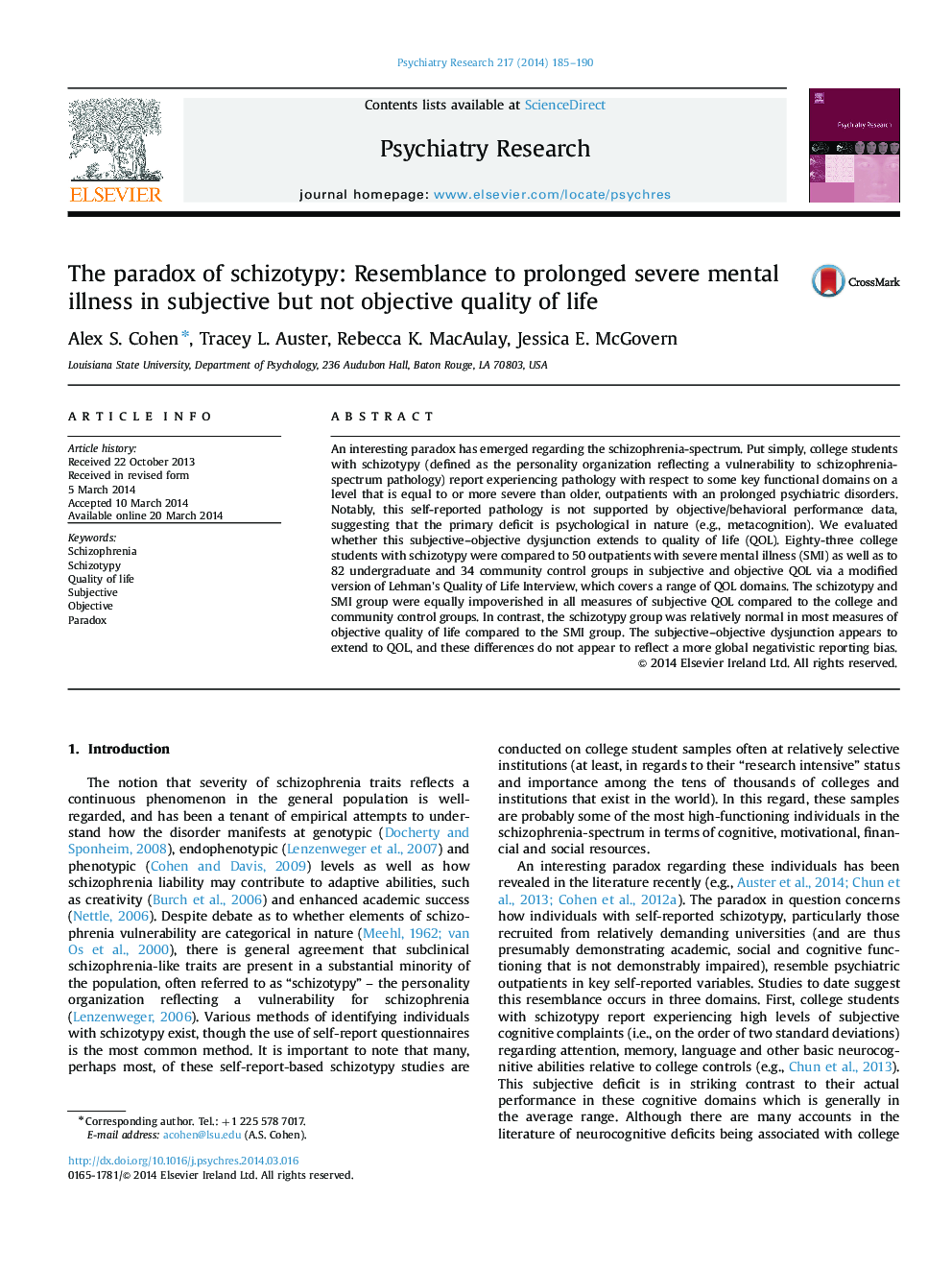| Article ID | Journal | Published Year | Pages | File Type |
|---|---|---|---|---|
| 332972 | Psychiatry Research | 2014 | 6 Pages |
An interesting paradox has emerged regarding the schizophrenia-spectrum. Put simply, college students with schizotypy (defined as the personality organization reflecting a vulnerability to schizophrenia-spectrum pathology) report experiencing pathology with respect to some key functional domains on a level that is equal to or more severe than older, outpatients with an prolonged psychiatric disorders. Notably, this self-reported pathology is not supported by objective/behavioral performance data, suggesting that the primary deficit is psychological in nature (e.g., metacognition). We evaluated whether this subjective–objective dysjunction extends to quality of life (QOL). Eighty-three college students with schizotypy were compared to 50 outpatients with severe mental illness (SMI) as well as to 82 undergraduate and 34 community control groups in subjective and objective QOL via a modified version of Lehman׳s Quality of Life Interview, which covers a range of QOL domains. The schizotypy and SMI group were equally impoverished in all measures of subjective QOL compared to the college and community control groups. In contrast, the schizotypy group was relatively normal in most measures of objective quality of life compared to the SMI group. The subjective–objective dysjunction appears to extend to QOL, and these differences do not appear to reflect a more global negativistic reporting bias.
